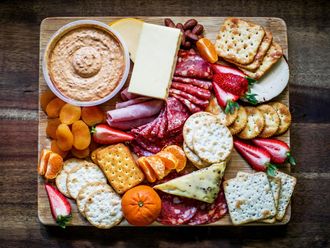Explore the beauty of the khutwa oasis in neighbouring Oman. Spin your wheels towards this exotic terrain amid beautiful mountains, says Paolo Rossetti.
In the heat of summer, off-roading traditionally takes a break in favour of indoor activities where the temperatures are artificially controlled; however, in times past, before refrigerants were blown through coils to produce a draught of cool air, where did the local people go to escape the summer heat?
The oasis, of course! The presence of a constant freshwater source was and (still is) the most valuable asset of any location in the region and through the creative use of irrigation, marvels of permanent agriculture provided not only sustenance but also a pleasant refuge from temperatures that can reach the mid-40s.
As soon as you enter an oasis, the temperature drops dramatically. Besides the trickle of flowing water in the falaj system (the farmers can adjust the quantity of water in the irrigation canal, and usually keep it to a minimum - just a trickle) and the cooling effect of its evaporation, oasis farmers typically maximise the use of the land by growing plants of various heights among each other.
So, the date palms and mango trees extend upwards, while corn and banana trees take the mid-section, and herbs or leafy vegetables cover the ground - the result is excellent shade and a moisture trap for the cooler oasis air.
(Since land area is minimal and restricted to plots bordered by barren rocky mountains, the farmers maximise the production of the land, the crop yield, by growing several compatible plants in the same area; therefore, a low-growing herb grows beside a mid-height banana tree, which grows in the shade of a tall date palm. This way, the yield per square metre is increased as is the variety of crops.)
When it comes to the plants, it's TLC
As we spin our wheels to visit one of the many working oases in the Al Ain/Buraimi area, let us consider that we will be setting foot on a plantation that has nourished generations of locals, that is still today tended to with love and care, and which is the home of these people. We will be guests, and must behave with due consideration for their kindness in allowing us to enter their property.
Etiquette, in this situation, dictates that we greet villagers with respect and ask their permission to walk around what is, in fact, their home garden. Plants of course must not be damaged in any way, neither must any garbage be left.
Basically, and you'll forgive me the lesson in manners, which I'm sure is not necessary, I've been surprised many times by the incredibly rude antics of visitors - who should know better - and who, for whatever reason, maybe the absence of walls or the unconditional welcome of their hosts, seem to forget they are in fact trespassing on private property. Modest dress is required, as is behaviour befitting a guest. Enough said, on with the drive!
Wadi Khutwa is a well-developed oasis, just northeast of Al Ain, but actually clearly in the neighbouring country of Oman.
At of the time of writing, entry to this part of Oman is allowed to UAE residents without any sort of border control; however, construction of an official border post is under way on the UAE side of the Buraimi border, which will allow passage to UAE residents after they fill in an immigration card and pay a 30-dirham fee per person.
On the Omani side, the border post remains on the Sohar road, farther than our destination.
So, as of now, you may reach our destination freely, but soon you will have to pass through a UAE border post.
We will begin our trip from the southern entrance into Buraimi, from Al Ain. This is found by reaching the UAE University Islamic Institute roundabout, and heading east to the second set of traffic lights, where you will turn left/north.
Once in Buraimi, follow the signs for Sohar, and you should quite easily find yourself on a straight single-lane road heading east.
On this road you will come across Al Maha petrol station, where you might want to top up your tank, and set your odometer to zero, and continue in an easterly direction until you reach a V-cut in the mountains after 4.5 km, and where you will turn left/north at the roundabout, again following signs for Sohar.
When your odometer shows around 20 km, you will see an intersection signposted Mahdah, and you will turn left/north. And at 26 km, you will be greeted by the Khutwa sign, and a right/east turn on to a tarmac road will take you straight towards the stark mountains of Oman.
After passing a little village, the road becomes a well-used hard track as you approach your destination. At the top of a small mountain pass you will see before you, as green as an sparkling emerald, the Khutwa Oasis, nestled between sharp rocks. Imagine what a sight that must have been to weary desert travellers, at the end of a shade-seeking journey, to see that resplendent wealth before them!
Follow the track down to the oasis, driving right into the centre of the oasis, between two walls, and with palm fronds brushing against your windscreen - at a respectful slow speed! - and park your vehicle at an impromptu parking lot which will appear before you at N 24'19.011/E 56'07.378.
As is customary, lock and remove all valuables from your vehicle. From the parking lot, you will notice a walking track heading into the shady trees; follow it and explore the oasis.
I will not guide you to the spectacular gorge on the other side, nor to the freshwater pools where you may modestly bathe, and I also will not guide you to the ancient metal smelters you will find following the falaj all the way to the source, but I will instead allow you to create your own adventure in respectfully exploring this natural marvel created by generations of hard-working people.
The villagers you will find to be shy of visitors, but at the same time they will undoubtedly welcome you in response to your respectful behaviour as a guest. It is increasingly difficult in this modern world to come across a culture as generous or as hospitable as the rural Omanis; without any exaggeration, these are the kind of people that will offer a guest their last date if only he or she mentions hunger.
It is however difficult for them to deal with both genders together, as they are accustomed to men meeting with men and women meeting with women, and so they will feel somewhat at a loss at what to do with a mixed group of visitors.
All in all, thankful for their allowing you access to the shade and beauty of their oasis, explore the wonders of this refreshing slice of paradise among the heat of the surrounding mountains, and be on your way - wheels well spun!











